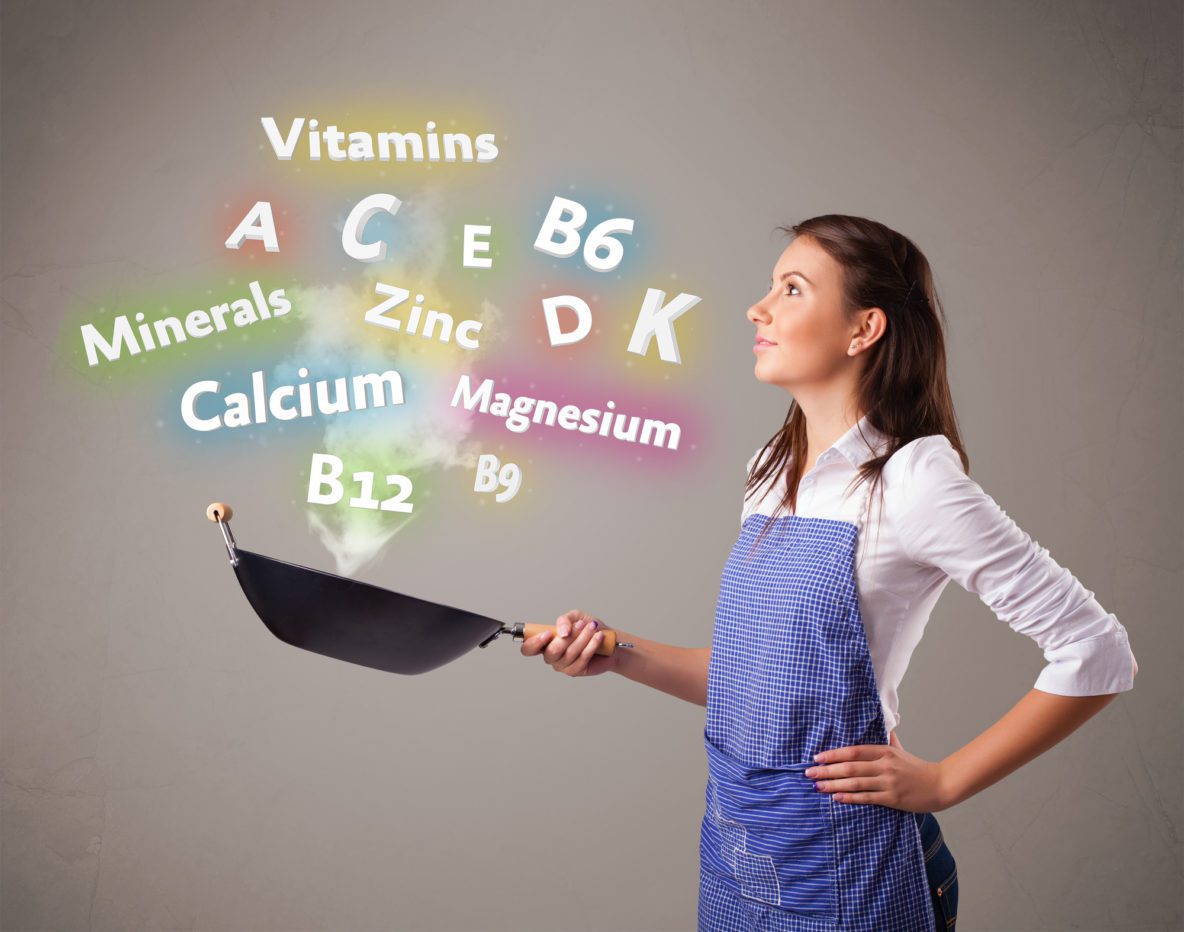Just as we need air and water, we all know that our bodies need vitamins and minerals to function properly.
They are the essential micronutrients your body needs to build, repair, grow, heal, protect, support and regulate almost every single function, including your hormones!
Trouble is, finding the right balance is not always easy. There are many things that get in the way of us obtaining these nutrients.
You can watch the video below or listen to the podcast.
Common causes of vitamin and mineral deficiencies
- Poor diet; you just might not be eating enough of the nutrients your body needs.
- Food quality; food grown in mineral depleted soil or with lots of chemicals may not have adequate nutrient levels.
- Stress; some nutrients are needed by the adrenals to help you deal with stress. They are easily used up if there’s a lot of stress in your life (eg Magnesium, Vitamin C, B vitamins).
- Lack of sunlight; to get adequate Vitamin D if you are not supplementing, the only source is direct sunlight which is not available in the Northern Hemisphere during the winter months. If you cover up or have darker skin, you may also not get enough exposure.
- Poor gut health; if we are eating good nutrients but not absorbing them very well, we are still going to be deficient.
- Ageing; as we get older, our nutrient needs go up, making it harder to ensure we are getting enough vitamins and minerals.
Testing can be helpful to confirm nutrient levels. In our blood tests we routinely check ferritin (iron), folate, active B12, Vitamin D and Magnesium levels.
But testing is not always easy or available for everyone, so here are some common signs and symptoms that you may want to be aware of.
6 vitamins and minerals to watch out for
There are over 30 different vitamins and minerals needed by the body, but here are 6 that can often be deficient;
- IRON
Iron is needed to carry oxygen in the blood to our tissues.
Common symptoms of deficiency; fatigue, hair thinning, pale appearance, mouth ulcers, brittle nails, restless legs, heavy periods
Food sources; meat, poultry, fish, soy, nuts, seeds, lentils, green veg
2. MAGNESIUM
Needed for over 300 different functions in the body, magnesium is crucial (I call it your hormone rescuer!)
Common signs of deficiency; fatigue, restless legs, twitchy muscles, cramp, cold hands, aching joints, low mood, anxiety, palpitations, PMS, painful periods, headaches, high blood pressure
Food sources; dark green leafy veg, nuts, seeds, broccoli, dark chocolate!
3. VITAMIN D
Actually a hormone, I’ve included it on this list due to its importance for your bones, immunity, mental health and much more.
Common signs of deficiency are not always obvious, but include depression or low mood, sleep issues, low immunity, bone pain
Food sources; trace amounts in eggs, oily fish – not enough to optimise levels
4. VITAMIN B12
A vital nutrient for energy and your nervous system, B12 deficiency is often mis-diagnosed.
Common signs of deficiency; fatigue, depression, brain fog, anxiety, dizziness, pale appearance, mouth ulcers, numbness/tingling in hands or feet, burning tongue or feet
Food sources; meat, fish, dairy (Vegans, please supplement!)
5. ZINC
An incredibly important mineral for your immune system, fertility, digestion and gene expression.
Common signs of deficiency; loss of taste or smell, white spots or ridges on nails, poor wound healing, poor appetite, stretch marks, hair loss, frequent colds
Food sources; meat, shellfish, whole grains, legumes, nuts, spinach
6. VITAMIN C
As well as critical for your immune system, Vitamin C also helps strengthen blood vessels and connective tissue, makes your skin supple, and is a major anti-oxidant.
Common signs of deficiency; sore bleeding gums, poor hair growth, easy bruising, frequent nose bleeds, frequent colds
Food sources; citrus fruits, bell peppers, broccoli, spinach, kiwi, Brussel sprouts, cauliflower
There are many more vitamin and minerals to consider but start with these 6 to rule out any potential deficiencies. They are more common than you’d think.
Supplements to consider
- A good Multivitamin – with active B vitamins and essential minerals
- Vitamin D3 – preferably with K2
- Vitamin C
- Magnesium – Citrate or Glycinate (avoid Citrate if you have Diarrhea or loose stools)
Please visit my collection at Approved Vitamins for my recommended brands.
And if you’d like to talk to us about our testing packages, do get in touch.

